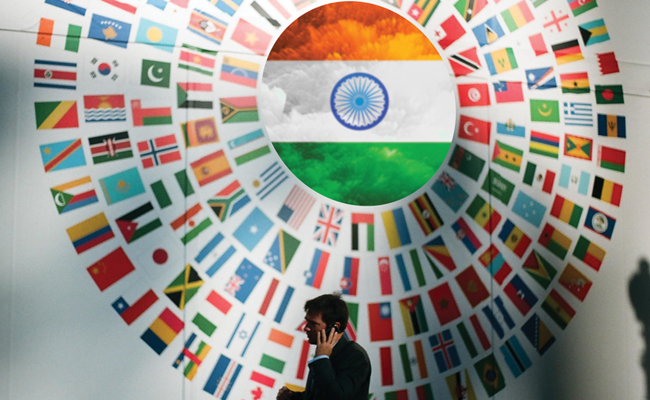
India News

Migration of Indians is increasing in almost every country around the world. Although countries like the United States, Australia, and Canada offer opportunities in jobs, education, and business, in recent times, conditions there have become tougher for Indian immigrants. Racism, anti-immigration policies, and economic challenges together are creating a situation that makes it feel like “the good days for Indians abroad are over.”
United States – Stricter Visa Policies
With Trump-era policies tightening again, students and IT professionals trying for visas are facing difficulties. Visa extensions have become complicated, fees have skyrocketed, and now even social media details must be submitted—turning the future of many Indians into a question mark.
Australia – Rising Racism
In Melbourne, rallies have seen direct attacks on Indians. Temples have been vandalized, students attacked on the streets, and hate speech has increased on social platforms—putting NRIs in a state of fear and anxiety.
Canada – Dreams Fading Away
Once a paradise for students, Canada is now sinking into economic difficulties. Finding housing has become tough, rents are rising, and job opportunities are shrinking—leaving students mentally and financially strained.
Needed but Viewed as a Burden
Despite all this, one fact cannot be hidden: Indian human resources are indispensable to these countries. From IT to medical fields, from research to transport, Indians form a strong backbone. They provide affordable labor through outsourcing and work hard—making these countries rely heavily on them.
Yet, paradoxically, locals often see us as a “burden.” Why? Because we too must reflect on our own behavior. We must abandon the mindset of doing abroad whatever we do in India. We must remember the old saying: “When in Rome, be like the Romans.”
Countries like the US, Australia, and Canada treat Indians as fuel for their growth engines. In IT, healthcare, education, research—our people work tirelessly. Harsh weather, different languages, and unfamiliar cultures don’t stop Indians from pushing forward.
But from the locals’ point of view, things aren’t so simple. When they feel their population is increasing, opportunities shrinking, and jobs being taken away, resentment builds. That’s where the problem begins. Thinking “what we do in India, we’ll do here too” is risky.
In India, sitting on the roadside chatting or making noise in public spaces is normal. But in other societies, that is seen as disruptive.
Our obsession with film stars needs some control. Celebratory rallies with swords and firecrackers on the streets may terrify locals. This labels us as a “dominating culture.”
Public enthusiasm must be kept under check. Random Bhangra or dances in shopping malls may not seem fun to locals—they may find it inconvenient or annoying.
Respecting local laws is non-negotiable. Even small mistakes can lead to heavy punishment there. From traffic rules to taxes—every regulation must be followed strictly.
Indian immigrants don’t live abroad just for themselves. Behind every rupee they earn is remittance that supports India, helps their families, and contributes to the development of villages back home. Our behavior shapes India’s image abroad.
Therefore, we must remember strongly the saying: “When in Rome, be like the Romans.”
Only then will the reality of “the good days for Indians abroad are over” change into “the days of Indians abroad have turned bright!”
Advertisment